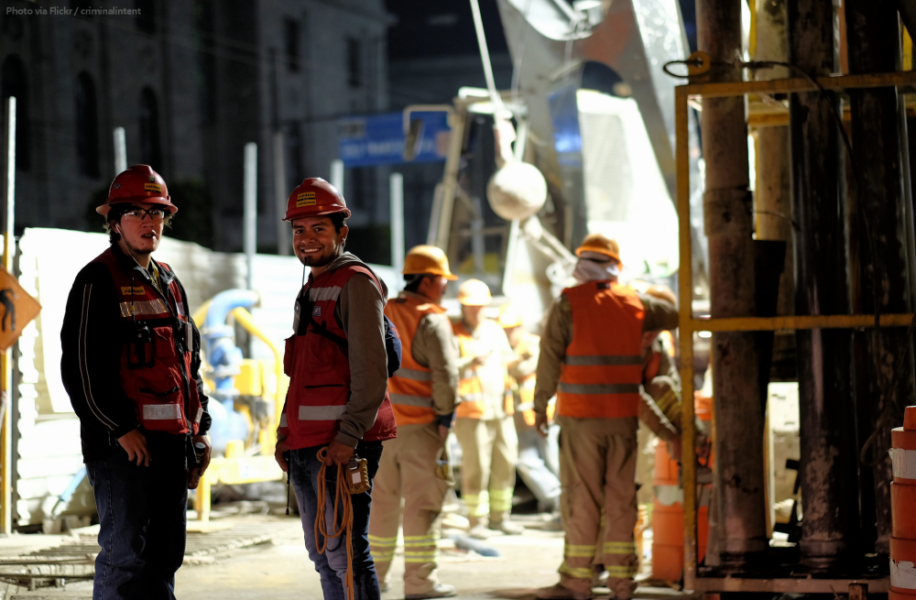Each year huge sums of public money are spent on procurement – funding everything from roads, to schools, housing, water and power supply and other community improvement. But with such vast expenditures, opportunities for public money to be lost through fraud corruption and mismanagement are rife. That’s why it’s vital to make the whole process around procurement transparent, open and accountable.
Integrity Pacts
At Transparency International we have developed a tool to help governments, businesses and civil society fight corruption in the field of public procurement. Integrity Pacts are an agreement between a government offering a procurement contract and the companies bidding for it. The pact states that the companies will abstain from bribery, collusion and other corrupt practices during the execution of a contract. A third party, usually from civil society, then monitors the entire project, to ensure that the process is transparent, clean and fair.
Integrity Pacts not only help ensure clean operations on the part of contractors and public officials during the execution of a project; they also yield other benefits. Integrity Pacts provide enhanced access to information, increasing the level of transparency in public contracts. This, in turn, leads to greater confidence and trust in public decision-making, less litigation over procurement processes and more bidders competing for contracts. Integrity pacts can also encourage institutional changes, such as the increased use of e-procurement systems, simplified administrative procedures and improved regulatory action. They can help save taxpayer funds, ensure that infrastructure projects and other public works are delivered efficiently, and stave off avenues for illicit gain.
Four years going forward
Transparency International and the European Commission have partnered to roll out Integrity Pacts for structural and cohesion funded projects in several EU member states. The overall project for safeguarding EU funds is split into two phases.
The first phase began on 1 January 2015 and ran for nine months. This preparatory phase secured participation of national authorities and civil society organisations in different EU Member States, and identified suitable projects to implement with Integrity Pacts. The project also developed a monitoring mechanism to evaluate the effectiveness of the Integrity Pacts in enhancing transparency and accountability.
The second phase involved rolling out 17 individual projects, in partnership with other civil society organisations, across 11 EU countries. In the next four years Integrity Pacts will be used to monitor over €920 million of EU co-funded projects, helping to ensure that structural and cohesions funds reach the communities that they are designed to help.
Today we are bringing together contracting and managing authorities, civil society and the European Commission in Brussels to kick-start this ambitious four year project funded by the European Commission.
Update: You can find presentations from this event below:
- Mr. Walter Deffaa, Director-General, Directorate General for Regional and Urban Policy, European Commission; Presentation
- Ms. Anna-Lena Zademach-Schwierz, Directorate-General for Regional and Urban Policy, European Commission; Presentation
- Ms. Claire Martin, Integrity Pact Technical Coordinator, Transparency International: Role of Civil Society in Promoting Good Governance in Public Procurement: Lessons Learned; Presentation
- Mr. François Arbault, Head of Unit, Directorate General Internal Market, Industry, Entrepreneurship and SMEs, European Commission; Presentation
- Ms. Iveta Koleva, Road Infrastructure Agency, Bulgaria; Presentation






